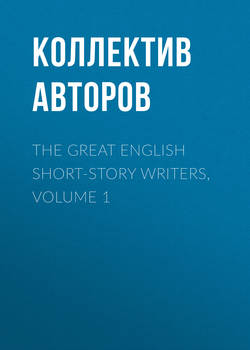Читать книгу The Great English Short-Story Writers, Volume 1 - Коллектив авторов, Ю. Д. Земенков, Koostaja: Ajakiri New Scientist - Страница 8
THE EVOLUTION OF THE SHORT-STORY
VIII
ОглавлениеBut between the irrelevant brief story, interpolated in a larger narrative, and the perfect short-story, which could not be expanded and is total in itself, of Hawthorne and Poe, there stands the work of a man who is little known in America, and by no means popular in England, that of the Ettrick Shepherd, James Hogg. He was born in Scotland, among the mountains of Ettrick and Yarrow, the son of a shepherd. When he was but six years old he commenced to earn his living as a cowherd, and by his seventh year had received all the schooling which he was destined to have – two separate periods of three months. Matthew Arnold, when accounting for the sterility of Gray as a poet, says that throughout the first nine decades of the eighteenth century, until the French Revolution roused men to generosity, "a spiritual east wind was blowing." Hogg's early ignorance of letters had at least this advantage, that it saved him from the blighting intellectual influences of his age – left him unsophisticated, free to find in all things matter for wonder, and to work out his mental processes unprejudiced by a restraining knowledge of other men's past achievements. In his eighteenth year he taught himself to read, choosing as his text-books Henry the Minstrel's Life and Adventures of Sir William Wallace and the Gentle Shepherd of Allan Ramsay. Not until his twenty-sixth year did he acquire the art of penmanship, which he learned "upon the hillside by copying the Italian alphabet, using his knee as his desk, and having the ink-bottle suspended from his button." During the next fourteen years he followed his shepherd's calling, making it romantic with sundry more or less successful attempts at authorship. He had reached his fortieth year before he abandoned sheep-raising and journeyed to Edinburgh, there definitely to adopt the literary career. He was by this time firm in his philosophy of life and established in his modes of thought; whatever else he might not be, among townsmen and persons of artificial training, his very simplicity was sure to make him original. In his forty-seventh year, having so far cast his most important work into the poetic form, he contributed to Blackwood's Magazine his Shepherd's Calendar, followed in the same year by the publishing of The Brownie of Bodsbeck; these were his first two serious excursions into the realm of prose-fiction. From then on until his death, in 1835, he continued his efforts in this direction, pouring out a mass of country-side tradition and fairy-folklore, amazing in its fantasy and wealth of drama.
For the imparting of atmosphere to his stories, a talent so conspicuously lacking not only in his predecessors, but also in many of his contemporaries, he had a native faculty. The author of Bonny Kilmeny could scarcely fail in this respect, when he turned his attention from poetry to prose. He had lived too close to nature to be able ever to keep the green and silver of woods and rivers far from his thoughts; they were the mirrors in which his fancy saw itself. Professor Wilson, who had known him as a friend, writing of him in Blackwood's after his death, says: "Living for years in solitude, he unconsciously formed friendships with the springs, the brooks, the caves, the hills, and with all the more fleeting and faithless pageantry of the sky, that to him came in place of those human affections from whose indulgence he was debarred by the necessities that kept him aloof from the cottage fire and up among the mists of the mountain-top. The still green beauty of the pastoral hills and vales where he passed his youth inspired him with ever-brooding visions of fairyland, till, as he lay musing in his lonely shieling, the world of fantasy seemed, in the clear depths of his imagination, a lovelier reflection of that of nature, like the hills and heavens more softly shining in the water of his native lake."
His taste is often defective, as is that of Burns on occasions. This is a fault which might be expected in a man of his training; but the vigor and essential worth of the matters which he relates are beyond all question. He did not always know where to begin his short-story, or where to terminate. Some of his tales, if edited with blue-pencil erasures, would be found to contain a nucleus-technique which, though far from perfect, is more than equal to that of Washington Irving, who, like Apuleius, "cared not how he loitered by the way," and very superior to that of most of his immediate successors in the art. His story here included, of The Mysterious Bride,15 could scarcely be bettered in its method. To tell it in fewer words would be to obscure it; to tell it at greater length would be to rob it of its mystery and to make it obvious. Moreover, by employing atmosphere he tells it in such a way as to leave the reader with the impression that this occurrence, for all its magic, might not only be possible, but even probable – which achievement is the greatest triumph of the short-story writer's art.
As this history of the evolution of the English short-story commenced with a poet, Chaucer,16 who wrote all save two of his short-stories in poetry, so it fittingly closes with a poet, the Ettrick Shepherd, who wrote most of his short-stories in prose. It remained for yet another poet, Edgar Allan Poe, who may never have heard the name or have read a line from the writings of James Hogg, to bring to perfection the task on which he had spent his labor.
15
Compare with Kipling's treatment of a similar theme in The Brushwood Boy.
16
The Gesta Romanorum was written in Latin.
